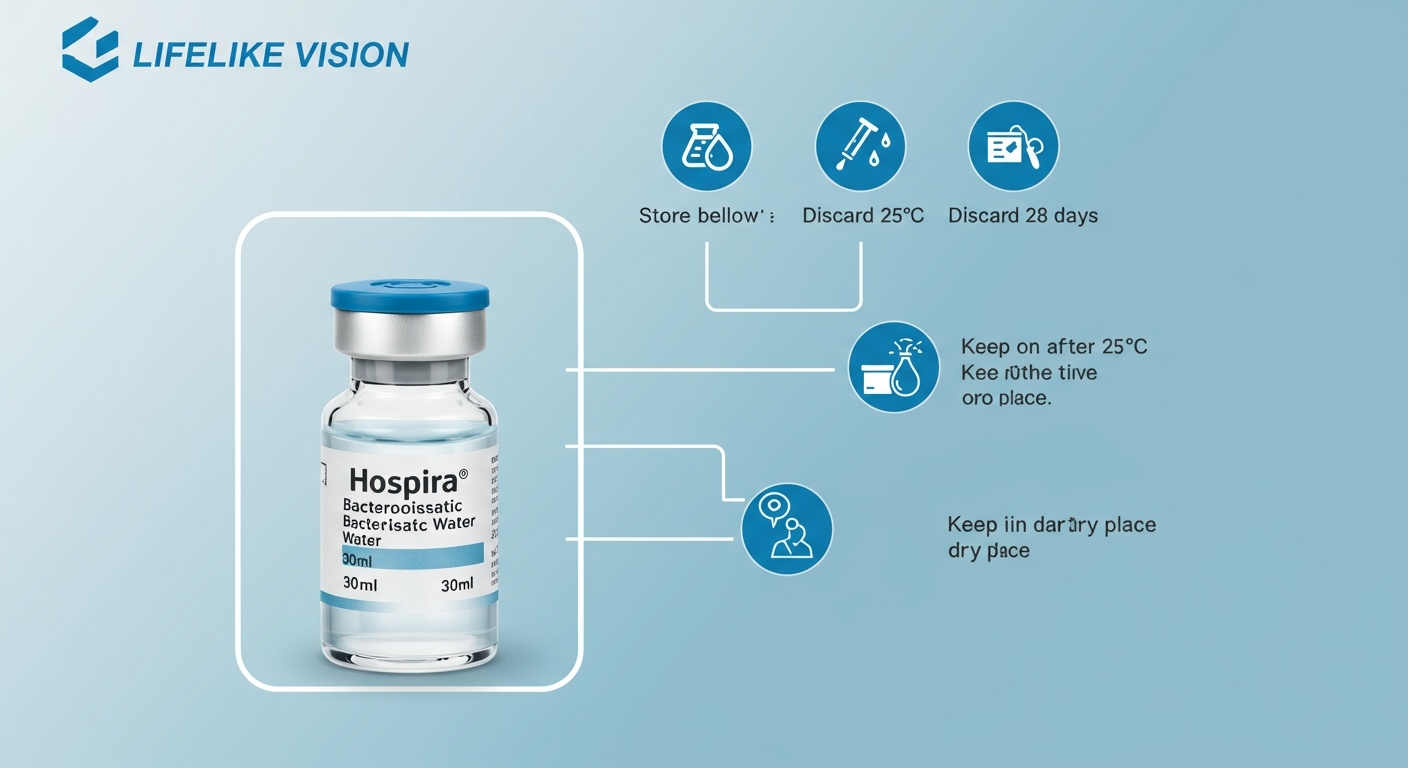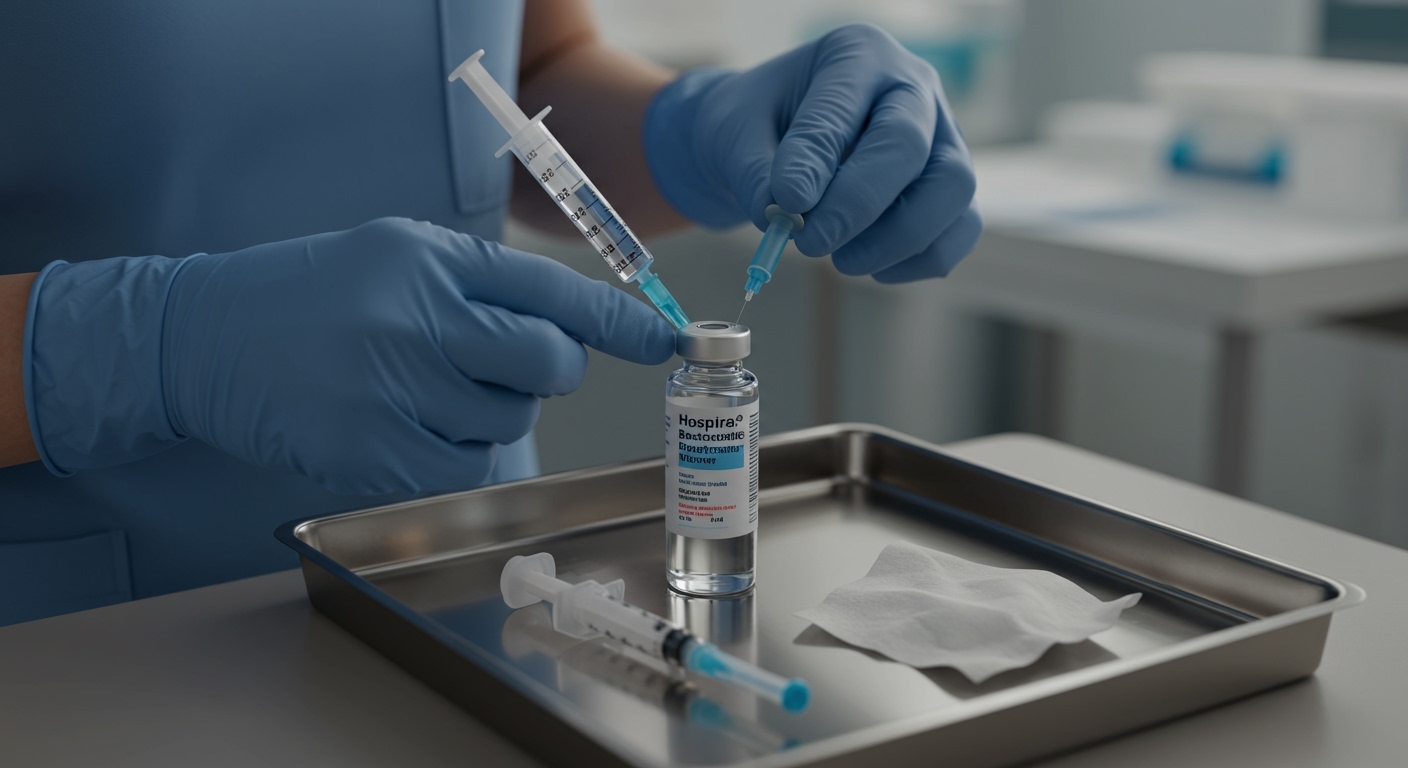How to Store BAC Water After Opening
Oct 20th 2025
The medical and pharmaceutical use of bacteriostatic water (BAC water) is common among many people. It is usually employed in hospitals, clinics, and home healthcare systems. With more people managing self-injections, safe storage has become very important. The United States healthcare market is experiencing consistent annual growth in the home use of medication. The knowledge of the proper storage of BAC water provides safety and effectiveness for future use. Proper storage means that no harmful bacteria grow inside it. Learn more about this medical solution on Arpovo Health, where expert guidance helps ensure safety.

The 28-Day Rule Explained
Many people often ask how long BAC water lasts after opening. The answer follows a strict safety rule known as the 28-day guideline. The U.S. Pharmacopeia and CDC recommend discarding any opened BAC water after 28 days. This timeline is based on scientific tests for microbial control in multi-use vials. The Hospira Bacteriostatic Water label states that benzyl alcohol would inhibit bacterial growth in a four-week period. That is the reason why it is safe to use that within that period and not beyond that. The preservative’s strength reduces once the vial is exposed to air, light, or temperature changes.
Why the Preservative Has a Time Limit
The antimicrobial agent benzyl alcohol is a mild antimicrobial agent. But its strength declines gradually after opening the vial. Repeated needle puncture permits small portions of air to penetrate or enter. This exposure exposes them to contamination and shortens the life of the preservative. Stability is also influenced by temperature variations; hence, proper storage is important. Additionally, the resistance to microbes weakens after 28 days, despite the appearance of the vial being clean. That is why disposing of it at such a time provides valuable safety in handling and use. It is necessary to follow this timeline when the product is used at home or at the hospital.
Refrigeration: Is It Necessary?
The question that many users usually ask is, Should bacteriostatic water be refrigerated? The response is dependent on temperature conditions. Bacteriostatic water can be kept at room temperature (below 25°C) safely, unlike sterile water, which needs to be cooled. Nonetheless, refrigeration can slightly raise its strength, particularly in warmer temperatures. By storing the vial in cold and dark conditions, one extends the quality of the vial. The BAC Water vs. Sterile Water guide describes the impacts of temperatures on storage time and product life.
Best Practices for Preserving Potency
To maintain the potency of BAC water throughout the entire shelf life, do the following simply:
- Keep the vial in an upright position in a clean, dark place.
- Exposure to direct sunlight and extreme heat should be avoided.
- Always keep the cap firmly closed.
- Always use a new, sterile syringe to decrease contamination.
These best practices maintain the preservative’s effectiveness. Clean handling and minimal exposure to light maintain product safety. For more safety details, check Arpovo Health’s bacteriostatic water vs. reconstitution solution guide. Simple habits like these help extend the BAC water shelf life and preserve its effectiveness.
How to Properly Date and Label Your Vial
One of the simplest methods of avoiding errors is proper labeling. Enter the date of opening the Vial on the label. This helps you remember the 28-day limit clearly. When you have several vials stored together, labeling prevents confusion. Always mark both the opening date and the expected discard date if possible. Many U.S. healthcare facilities follow this method under the CDC’s multi-dose vial protocol. Labeling also helps track bacteriostatic water storage after opening in both home and professional setups. Simple labeling improves safety and ensures every vial is used properly.
Signs Your BAC Water is No Longer Usable
BAC diluent may even become unsafe prior to 28 days, even when the storage is well maintained. It is imperative to understand when to discard it. Pay close attention to the following warning signs:
- Cloudiness or a hazy appearance in the liquid.
- Any floating particles or visible residue.
- A yellow or discoloured tint compared to a new vial.
- Changes in smell or unusual odours.
Wherever any of these signs occur, dispose of the vial at once. There is a possibility of infections or other problems when contaminated water is used. It is safer to replace the vial instead of the danger of contamination. This applies especially when using it for injections or medication preparation. Even though the BAC diluent or water shelf life is about 28 days, visible changes mean immediate disposal. Do not ever seek or attempt to filter or reuse doubtful solutions. Your health and safety would always come first.
Does BAC Water Expire?
Yes, does BAC diluent or water expires is another common question asked by users. Every unopened vial comes with a printed expiration date from the manufacturer. The period of 28 days takes effect after opening, despite the printed expiry. When stored under good conditions, unopened vials can normally last a few years. Thought to make use of every vial before the expiry date. In case it goes out of date, dispose of it despite looking clear. Its preservatives and sterile integrity decrease with time and this may affect safety. Always keep unopened vials in a dry, dark, and cool atmosphere with no direct sunlight.
Comparing BAC Water to Other Diluent Solutions
BAC diluent or water differs from sterile or saline solutions mainly due to the preservative. While sterile water has no preservative, the BAC diluent includes benzyl alcohol. This addition makes the BAC diluent reusable for multiple injections within the 28-day window. It also lowers the risk of bacterial growth compared to plain sterile water. However, sterile water is still preferred when the injection must be preservative-free. The difference in storage requirements explains why bacteriostatic water storage after opening needs special care. All types of solutions also have their role to play; they have to be properly handled to remain sterile.
Practical Tips for Everyday Storage Safety
There is no special equipment or advanced tools needed to have safe storage. A few careful steps keep BAC water effective and safe for longer:
- All medical vials should be kept in a closed cabinet or medicine box.
- Do not keep them close to direct heating or household appliances.
- Wash your hands before handling the vial or removing the cap.
- Alcohol wipes should be used before and after any puncture with a needle.
These steps maintain sterility even in home environments. Such small actions prevent contamination that could compromise safety. Following these simple rules ensures maximum safety and helps users maintain consistent quality.

When to Replace Your BAC Water
Even if your BAC diluent looks clear, replace it after 28 days. Following this period, the preservative does not provide full protection. When you have many vials, then you can turn this around so that the older vials are used first. This saves wastage and still provides you with a safe backup. Never share vials with or without sterile needles. Personal vials reduce cross-contamination and preserve the integrity of products. In doing so, you will have guaranteed the lifespan of your vials. By doing this, the lifespan of your vials is guaranteed.
Final Thoughts
Proper storage of bacteriostatic water is easy but very important. In the U.S., healthcare professionals and compounding pharmacies emphasize careful handling. Safe use implies that every dose made with BAC water is sterile and effective. The risks of contamination are reduced by reading and following the guidelines of a manufacturer. The right labelling, clean tools, and safe disposal would all mean that the user does not encounter unnecessary health issues. Keep in mind that little hygiene can create significant differences in safety.
Explore the variety of pharmaceutical grade dilute solutions and Hospira Bacteriostatic Water at Arpovo Health. Discover options designed for both clinical and home healthcare use. Visit the website today to find high-quality, safe, and trusted medical products for your daily needs. Learn more about professional storage and handling on Arpovo Health’s medical solutions page.

